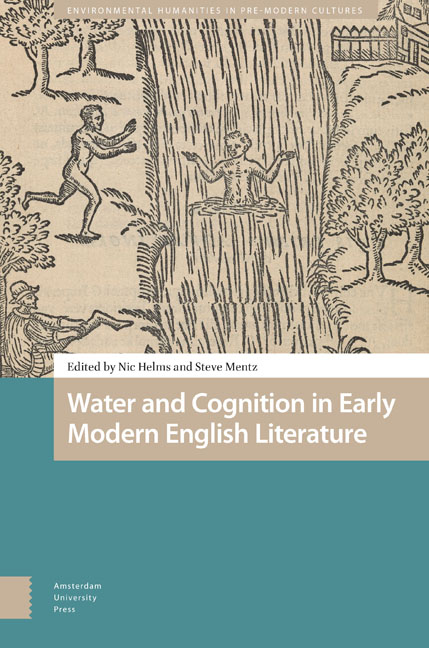Book contents
9 - “No darkness but Ignorance” : Thinking Foggily in Shakespeare and Early Modern Drama
Published online by Cambridge University Press: 16 April 2024
Summary
Abstract
Fog, and its relationship to thinking and mental states, is a frequently employed metaphor in early modern English. This essay considers the range of these uses, positioning meteorological, poetic, and dramatic examples, particularly Shakespeare’s, against those of early humoral thinkers, such as Robert Burton and Thomas Bright. In order to explore these examples further, a number of studies from experimental cognitive linguistics are then introduced and connected to theatre studies in particular. The final section of the essay builds on these foundations to develop a close reading of the fog in Thomas Middleton's The Triumphs of Truth. In particular, it considers what the salience of the fog-ignorance metaphor means for a cognitive analysis centered on the incoming mayor of Jacobean London.
Keywords: fog, theatre history, cognition, Thomas Middleton, melancholy, mayoral shows
Let me be clear. Whenever I hear this phrase, uttered so frequently in our current political discourse, I think reflexively of Sebastian in Twelfth Night: “Go to, go to, thou art a foolish fellow. Let me be clear of thee.” No doubt I now seem arrogant, but the phrase for me is so tainted by the lack of clarity that often follows it, that I cannot break the habit of my thought. And it is a remarkable thing about human thought that, having read this, it may well become a habit of your thought too.
I begin this chapter on fog with this quotation for a simple reason. The relationship between fog and thinking is most obvious in its opposite: when we think without fog, we think clearly. Of all the forms that water takes, however, it is perhaps that of fog which, in English at least, has the oldest connection to thinking. The Oxford English Dictionary gives the earliest occurrence of fog to refer to the meteorological condition as 1544; the figurative usage follows by 1565: “The authorities here alleged are full of Fogge, and false grounde.” Both of these, however, are long preceded by the adjective foggy. From its earliest usages, this word figured a mental obliviousness, as in John Skelton's phrase, c.1487, “Enkankred with the foggy mystis of clowdy ignoraunce.”
- Type
- Chapter
- Information
- Water and Cognition in Early Modern English Literature , pp. 199 - 216Publisher: Amsterdam University PressPrint publication year: 2024



